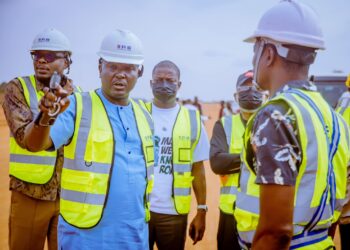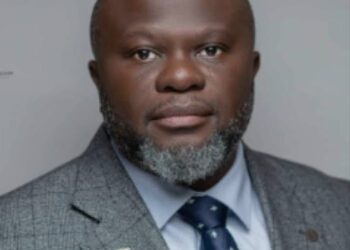As Nigeria approaches another crucial phase in its democratic journey, particularly with the general elections fast approaching, political conversations are intensifying. Across the country, and notably within Kogi State, aspirants are either openly declaring their intentions to contest various elective positions or engaging in subtle campaigns through their proxies. Amid this flurry of political activities, it becomes vital to focus on the dynamics in Kogi East; one of the most politically strategic and demographically significant senatorial districts in Nigeria.
Kogi East is not only the largest senatorial district in Kogi State, but it also boasts a rich political history and cultural heritage, primarily dominated by the Igala ethnic group. Historically, the district held an influential position in determining the political direction of the entire state. From 1999 to 2015, three successive governors—Prince Abubakar Audu, Alhaji Ibrahim Idris, and Captain Idris Wada—all hailed from Kogi East. During this era, the district wielded considerable power, dictating political outcomes and shaping policy directions across Kogi State.
Ironically, this period of gubernatorial dominance coincided with some of the poorest legislative representations from the senatorial district. While Kogi East held sway over executive positions in the state, its voice in the National Assembly was faint, often muted by self-serving representatives who were largely unaccountable to their constituents. This paradoxical imbalance weakened the district’s structural development and federal influence.
However, the tide turned dramatically in 2015 with the unexpected emergence of Yahaya Bello from Kogi Central as governor; a development many regarded as a divine reordering of the state’s political architecture. Since then, Kogi East has seen its political hegemony challenged, if not significantly diminished, now confined largely to senatorial and federal legislative contests.
Given this backdrop, it becomes not only necessary but imperative for the people of Kogi East to re-strategize and consolidate their political strength. The most viable route is through qualitative representation at the National Assembly. In this respect, the role of a senator transcends mere lawmaking. It includes strategic lobbying, national influence, constituency development, and the ability to secure tangible dividends of democracy for the people. All of these are made even more effective by the principle of ranking in the legislature.
In the Nigerian Senate, experience matters. Ranking senators; those who have spent multiple terms naturally command more respect, enjoy greater privileges, and are more likely to secure leadership roles in critical committees. These positions enable them to influence federal budgets, attract high-impact projects, and establish stronger negotiating leverage with the executive and other arms of government.
This is not theoretical. We have seen how senators like Ali Ndume (Borno South, since 2003), Enyinnaya Abaribe (Abia South, since 2007), and Ahmad Lawan (Yobe North, since 1999) have consistently delivered massive constituency projects, largely because of their long-standing presence and influence within the National Assembly. Their voices are prominent in debates, and their decisions carry weight in national policymaking.
For Kogi East, re-electing Senator Jibrin Isah Echocho offers a golden opportunity to begin building such long-term influence. In just five years, Echocho has not only proven to be a reliable and effective legislator but has also laid a solid foundation for a more empowered and respected Kogi East in Abuja.
Senator Jibrin Isah Echocho is not a typical politician; he is a technocrat with decades of experience in banking and financial administration. His entry into politics brought a refreshing wave of professionalism, diligence, and empathy; qualities that have translated into measurable development for his constituents.
Under his watch, Kogi East has witnessed an unprecedented wave of constituency projects. From rural road constructions to the establishment of healthcare centers, potable water systems, and educational infrastructure, Echocho has demonstrated that a senator’s influence can indeed touch the grassroots. His investment in mental health awareness, women empowerment, and agricultural development, especially through the distribution of farming equipment and tractors has uplifted countless families across the district.
Beyond physical infrastructure, Echocho has focused heavily on human capital development, an often-neglected but vital aspect of national growth. He has facilitated federal job placements for many young people in his constituency and, uniquely, ensured that these beneficiaries were adequately supported with logistics and stipends to help them settle into their new roles. This is not a duty required by law, but one that speaks volumes about his personal commitment to the welfare of his people.
More impressively, Senator Echocho continues to live and invest among his people. His major personal investments, particularly in education, are rooted in his hometown, demonstrating a rare authenticity and closeness to his constituency. It is not an overstatement to say that no community in Kogi East is without someone who has directly or indirectly benefited from Echocho’s career in Nigeria’s financial sector.
At this critical juncture in Nigeria’s democratic journey and Kogi East’s political evolution; the choice of who represents the district in the National Assembly must be made with clarity, strategy, and a long-term vision. The temptation to yield to partisan sentiments, ethnic rivalries, or individual ambitions must be resisted. The stakes are simply too high.
Re-electing Senator Jibrin Isah Echocho is not merely about rewarding past achievements; it is about securing future opportunities. With a 3rd term, Echocho will ascend into the cadre of ranking senators; an elevation that will unlock greater access to federal projects, committee leadership roles, and national decision-making processes. It is this kind of influence that Kogi East desperately needs to regain its political relevance both in Kogi State and in the national political discourse.
Furthermore, changing a senator who is performing well midway into his legislative trajectory is akin to changing a winning team in the middle of a championship game. Such a move would not only be counterproductive but could also set the district back by several years in its quest for national relevance.
It is often said that every generation must outdo the previous in vision and commitment to the common good. For the people of Kogi East, the forthcoming election is a test of that patriotism. It is not about personalities; it is about purpose. It is not about today’s applause but about tomorrow’s inheritance. The political future of Kogi East depends on the strategic decisions made today.
If the goal is to reclaim the district’s lost glory, rebuild its influence at the national level, and secure real development for its people, then there must be a collective commitment to retaining those already making measurable impact. Senator Jibrin Isah Echocho has proven that with the right mindset and dedication, even one senator can change the narrative of an entire district.
In conclusion, the people of Kogi East must rise above the usual electoral gimmicks and embrace a higher cause, the cause of continuity in progress, consolidation of legislative gains, and the advancement of political influence. Senator Echocho is not just the best candidate on paper; he is the best candidate in practice, in record, and in vision.
The task ahead is simple but significant: Re-elect Senator Jibrin Isah Echocho, not just for Kogi East, but for the future of Kogi State and Nigeria.
Dr Tijani Abutu
Writes from Abuja
Federal Capital Territory















